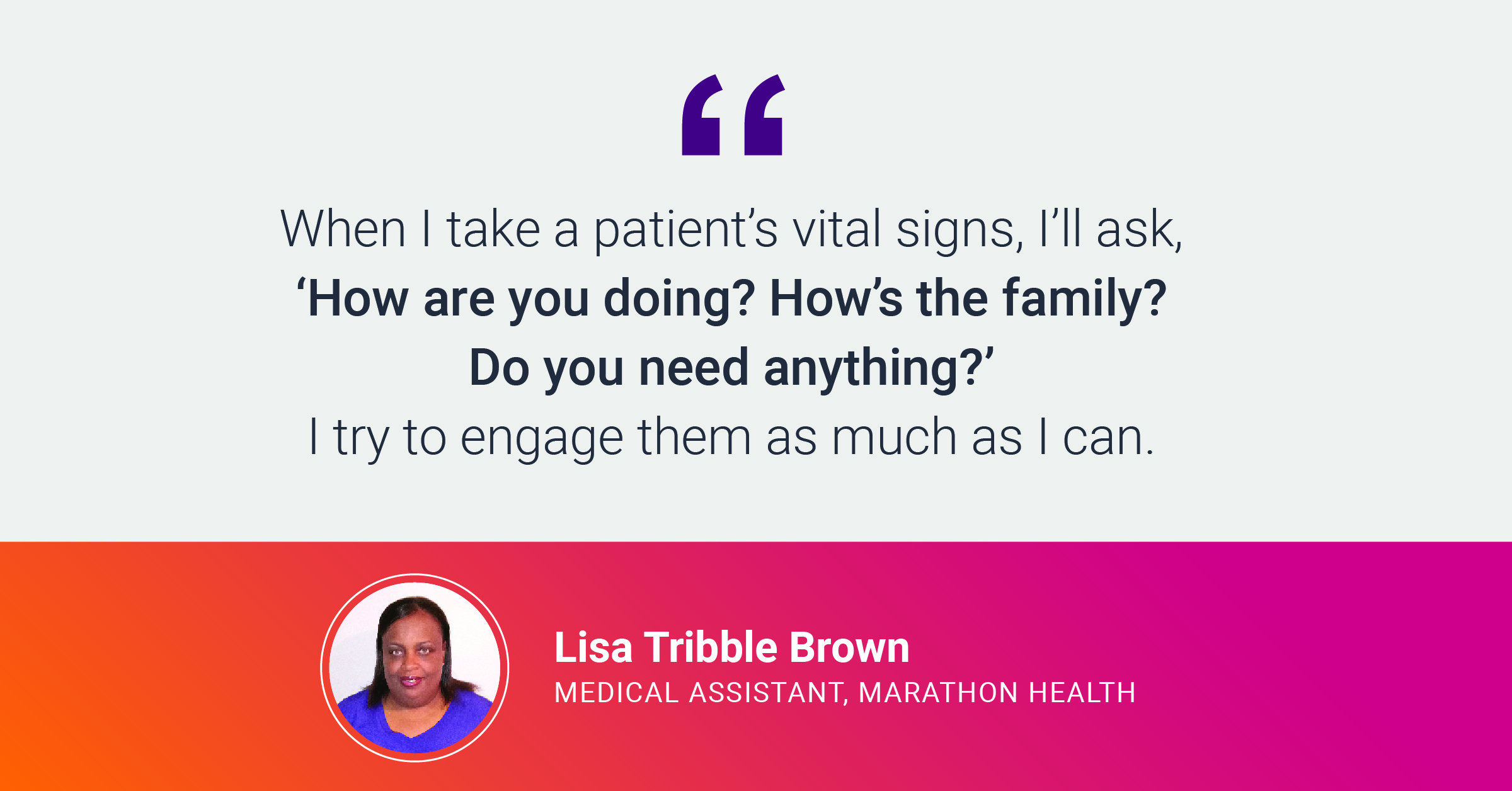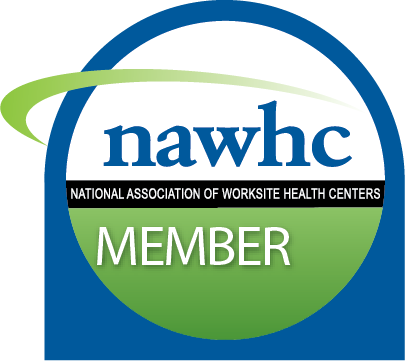Marathon Health’s one-on-one series highlights the role different care providers play in improving employee health at the worksite, at a nearby Network health center or virtually. In this blog, we spoke to Medical Assistant Lisa Tribble Brown about how she helps patients lead healthier lives.
When one of the roughly 800 City of Plantation employees or their family members visit the City’s dedicated employee care center, they often first meet Lisa Tribble Brown, a medical assistant who greets them with a warm welcome and a smile.
Ideally, Lisa addresses the patient by name. “My goal is to remember their names, at least by the second visit,” she says. “When they walk in the door, I want to welcome them by name without even having to look at the computer. People always say to me, ‘You know every member’s name.’ I tell them it’s my personal goal.”
But it’s not just about learning names for Lisa. She wants to get to know her patients on a personal level and build long-term relationships.
“When I take a patient’s vital signs, I’ll ask, ‘How are you doing? How’s the family? Do you need anything?’ I try to engage them as much as I can,” Lisa says.
A Typical Day for a Medical Assistant
Now in her 13th year as a medical assistant for Marathon Health, Lisa wears several hats. Her job duties include collecting patient history, recording vital signs like blood pressure and heart rate, taking blood draws, administering vaccines, helping patients schedule follow-up appointments and preparing providers for the appointment at hand. Sometimes, she provides a shoulder to lean on.
City employees visit the care center for a variety of reasons, from preventive care and sick visits to comprehensive health reviews, physical exams and biometric screenings. And because all city workers have access to the care center, as do their spouses and covered dependents, Lisa works with a diverse mix of patients.
“We see everyone from the guys who sweep the floors to the mayor of the City of Plantation,” she says. “We see the chief of police, firefighters and paramedics, people in utilities and the public works department — we see everybody.”
Despite the wide range of patients and health conditions, most days start out the same for Lisa. “In the mornings, a majority of the appointments are for comprehensive health reviews and physical exams, because patients typically need to fast before the appointment,” she says. “So, they obviously want to come in as early as possible.”
Following the influx of physicals in the morning, Lisa says she often sees a mix of sick visits and acute issues, followed by another wave of physical exams in the late afternoon for police and firefighters who are just beginning the night shift. Similar to the other patients, they need to fast for eight hours before the appointment and want to complete it as soon as possible.
Medical Assistant Says Proactive Outreach to Patients is Key
Lisa is not only beloved by her City of Plantation patients for her kind demeanor, but patient surveys also cite her as a key driver for engaging with the care center. When she’s not drawing blood or checking vitals, Lisa routinely reaches out to patients just to check in, ask how they’re feeling and encourage them to schedule an appointment.
“I’ll look back at their history and say, ‘OK, this patient hasn’t been here in six months, he’s hypertensive and he needs to come in and make sure he’s doing his blood work and getting his medicine,’” Lisa says. “Or, I might call a patient and say, ‘Hey, I haven’t seen you in a while. Do you want to come in and do a checkup? Do you want to talk to someone? Are you feeling okay mentally, physically?’”
The outreach really works, and Lisa says some patients rely on her call to motivate them to visit the care center. “Just today, I was talking to the husband of one of my patients and I told him I hadn’t seen his wife in a while. He told me, ‘You’re not going to see her until you call, because she’s waiting for your phone call,’” she says.
“This is the Place Where I’m Going to Retire”
Before joining Marathon Health, Lisa worked for 15 years at Quest Diagnostic, where she sometimes saw over 100 patients in a day. The relaxed environment at Marathon Health stands in stark contrast, with providers seeing far fewer patients per day.
“We keep a good schedule,” she says. “Each provider sees somewhere between seven and 10 patients a day. Rachel, our behavioral health specialist, sees six patients a day. I see anywhere between 10 and 15 patients a day.”
Fewer patients each day combined with longer appointment times — a core component of the Marathon Health care model — enable Lisa to forge close relationships and ensure patients receive the care they need. She says one of the main reasons she loves working at Marathon Health is because she feels the organization values its employees in the same way.
“I think I fell in love with Marathon when I became really sick out of the blue,” she says. “Jerry, our [former] CEO called me and said, ‘What do you need? You take care of everybody else, what do you need?’ It changed everything for me when I got that phone call. I was like, ‘OK, this is the place where I’m going to retire.’”
You might also like
Subscribe to our newsletter and stay on the cutting edge of worksite healthcare.










